Are you facing a legal dilemma and unsure where to turn? Seeking preliminary legal advice can be a crucial first step in navigating your situation, providing clarity and direction. In this article, we'll explore the key elements to consider when drafting a letter to request legal counsel, ensuring you convey your needs effectively. So, if you're ready to take the next step in understanding your legal rights, read on for valuable insights!
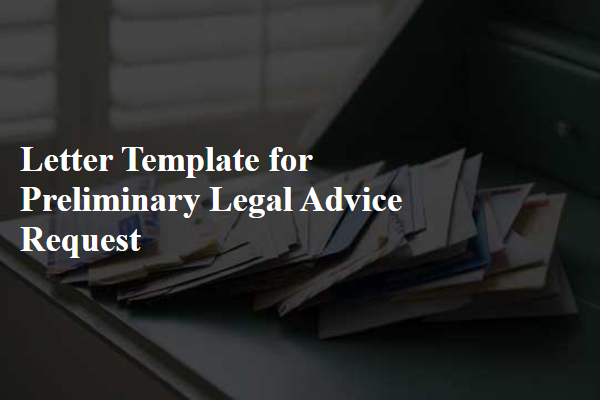
Client Information
Clients seeking preliminary legal advice should provide comprehensive information to facilitate an accurate assessment of their situation. Essential details include the client's full name, contact information, and date of birth for identification purposes. A brief description of the legal issue is crucial, outlining key events, such as contracts, disputes, or claims involved. Specific dates and locations relevant to the matter (e.g., place of occurrence, jurisdiction) should also be included. Additionally, any documents related to the case, such as agreements, court notices, or correspondences, can significantly aid in understanding the context. Finally, mention any deadlines or upcoming hearings that may impact the legal process, ensuring timely and informed legal counsel.
Legal Issue Description
In legal matters, improper documentation can lead to complications and misunderstandings. A formal request for preliminary legal advice typically needs to outline the specific issue at hand, such as a contract dispute, intellectual property concerns, or employment law queries. It is vital to provide context on the jurisdiction, like the State of California or the United Kingdom, as laws differ significantly across regions. Detailed information about involved parties, including individuals or corporate entities, is essential for clarity. Additionally, relevant dates of events, such as the date a contract was signed or the date an incident occurred, play a critical role in shaping the advice provided. Clearly stating the desired outcome, whether seeking interpretation, resolution, or next steps, enhances the understanding of the request. Providing any pertinent documents, such as previous correspondence or legal notices, can further assist legal professionals in assessing your situation accurately.
Relevant Documents
A request for preliminary legal advice typically necessitates the gathering of pertinent documents to support the legal inquiry. Key documents may include contracts, agreements, correspondence, records of communication, and any relevant legal filings. For instance, a business partnership agreement can illustrate the terms and conditions of collaboration, while emails can provide insights into the intent and understanding between the parties involved. Additionally, court documents such as filed complaints or legal notices can clarify any ongoing litigation matters. It is essential to curate these materials to ensure that the legal counsel has a comprehensive understanding of the case at hand, facilitating a more accurate and informed advisory process.
Desired Outcome
Seeking preliminary legal advice involves outlining specific desired outcomes to guide the consultation effectively. A clear statement of goals is essential. For instance, individuals may desire to understand their rights in a contractual dispute (potential financial ramifications or obligations), clarify legal terminology surrounding a property claim (zoning laws relevant to commercial real estate), or assess the repercussions of a potential lawsuit (including possible damages, legal fees, or time commitments). Understanding these desired outcomes can facilitate a more targeted and productive discussion with legal counsel, leading to informed decisions for the next steps.
Contact Details
To request preliminary legal advice effectively, it is essential to provide complete contact details including name, address, email, and phone number. Precise identification of the individual or entity seeking advice ensures that correspondence is directed accurately. It's imperative to specify the subject matter of the inquiry clearly, such as contract disputes, personal injury claims, or intellectual property rights, as it facilitates a focused response from the legal advisor. Including a brief summary of relevant facts, including dates, parties involved, and any previous communications or documentation related to the matter, aids in a thorough assessment. Ensuring professionalism in the presentation reflects seriousness and respect for the advisor's time.
Letter Template For Preliminary Legal Advice Request Samples
Letter template of request for preliminary legal advice on contract issues
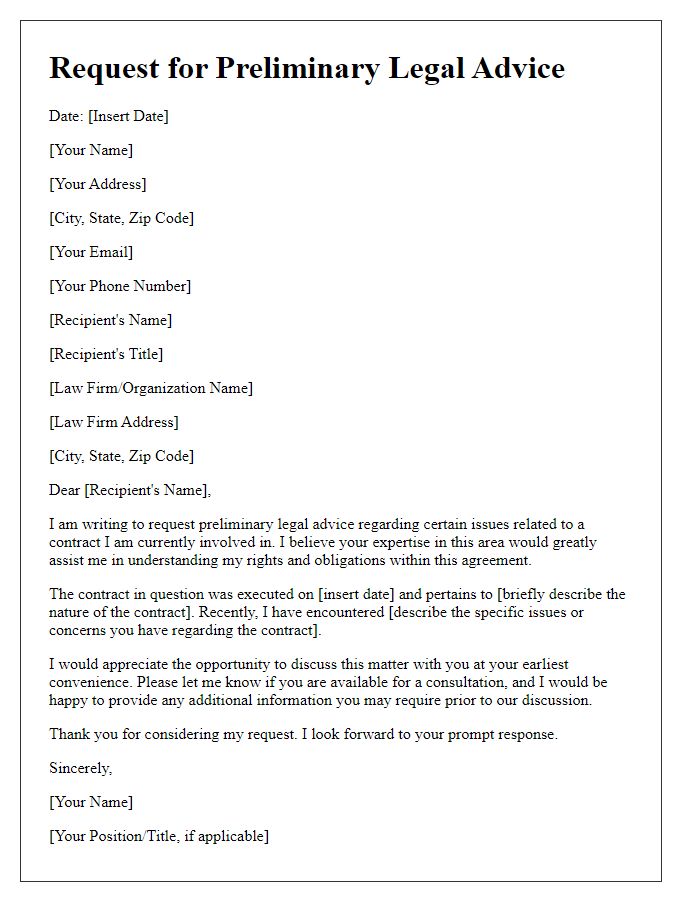
Letter template of inquiry for initial legal consultation regarding family law
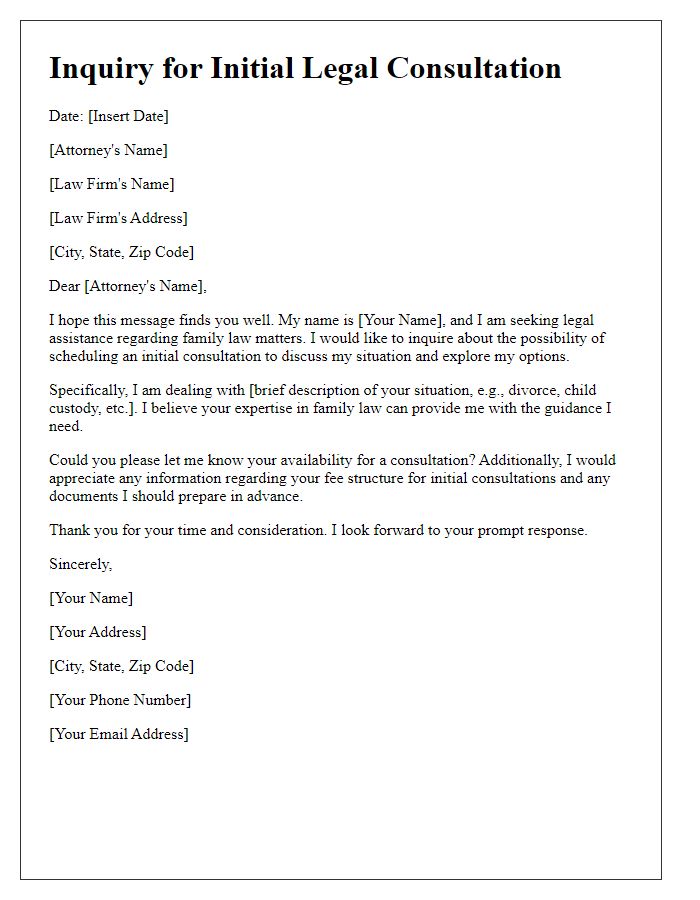
Letter template of application for basic legal guidance on real estate matters
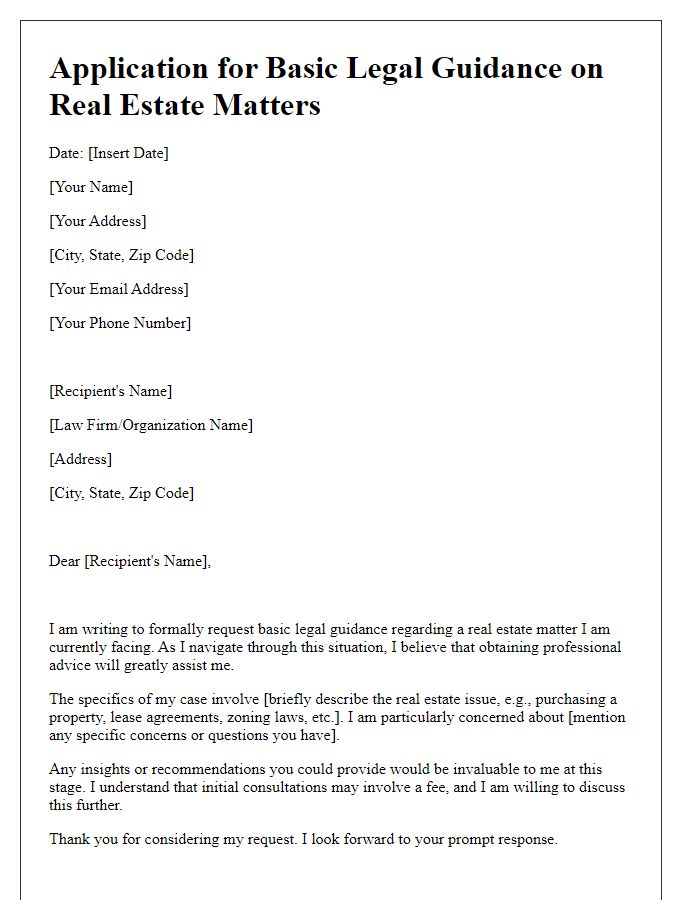
Letter template of solicitation for preliminary legal advice about employment disputes
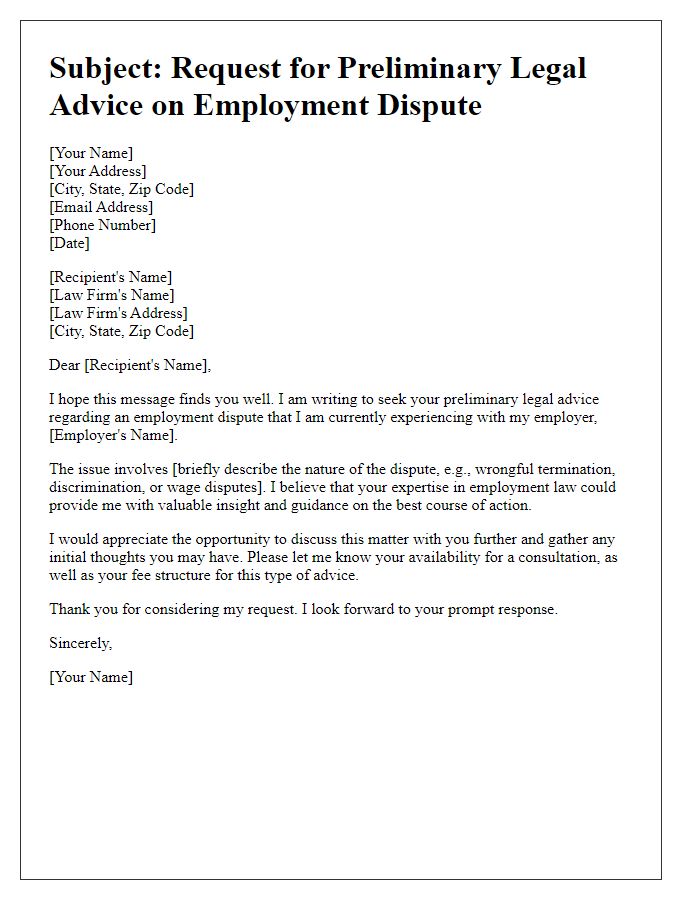
Letter template of request for introductory legal assistance concerning intellectual property
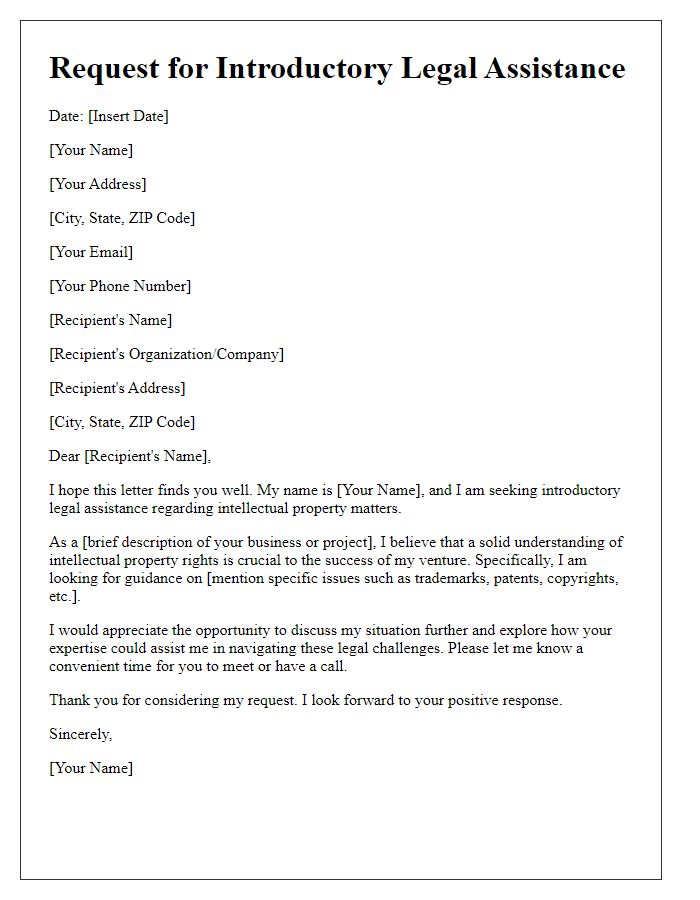
Letter template of appeal for foundational legal advice related to business formation
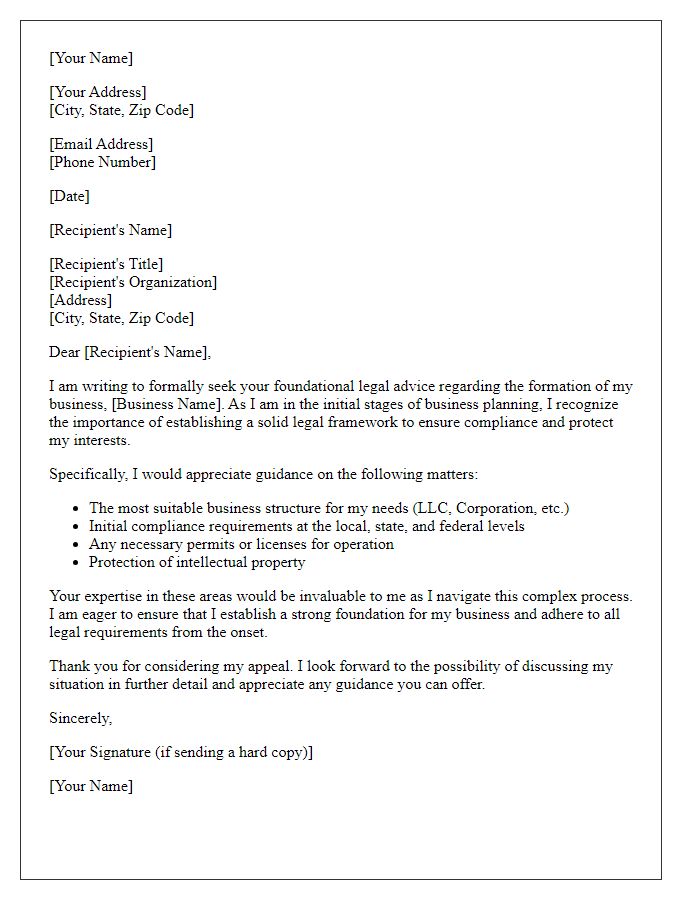
Letter template of inquiry for initial legal support about personal injury claims
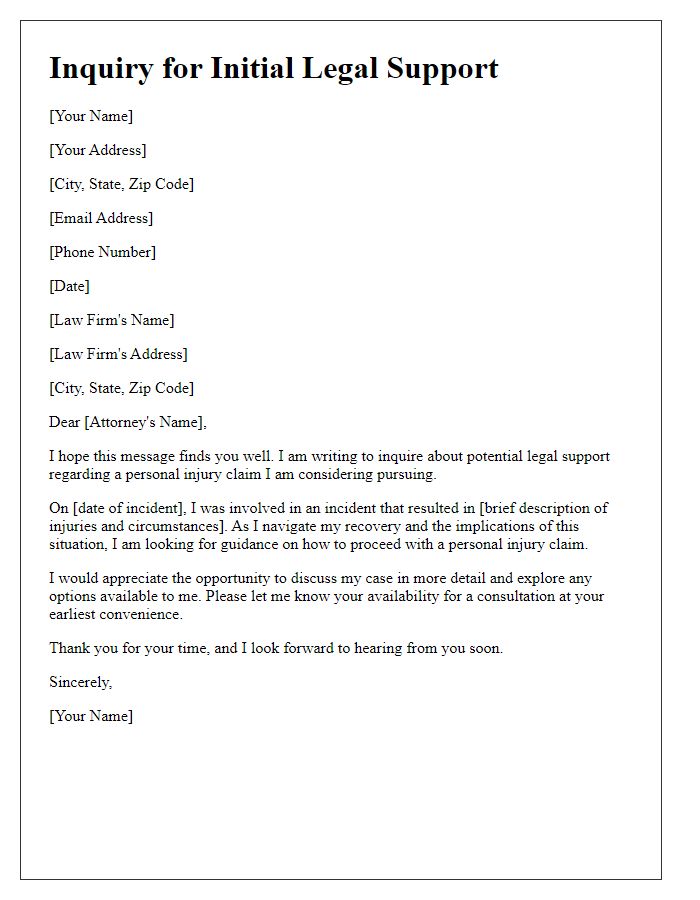
Letter template of application for preliminary legal guidance on immigration concerns
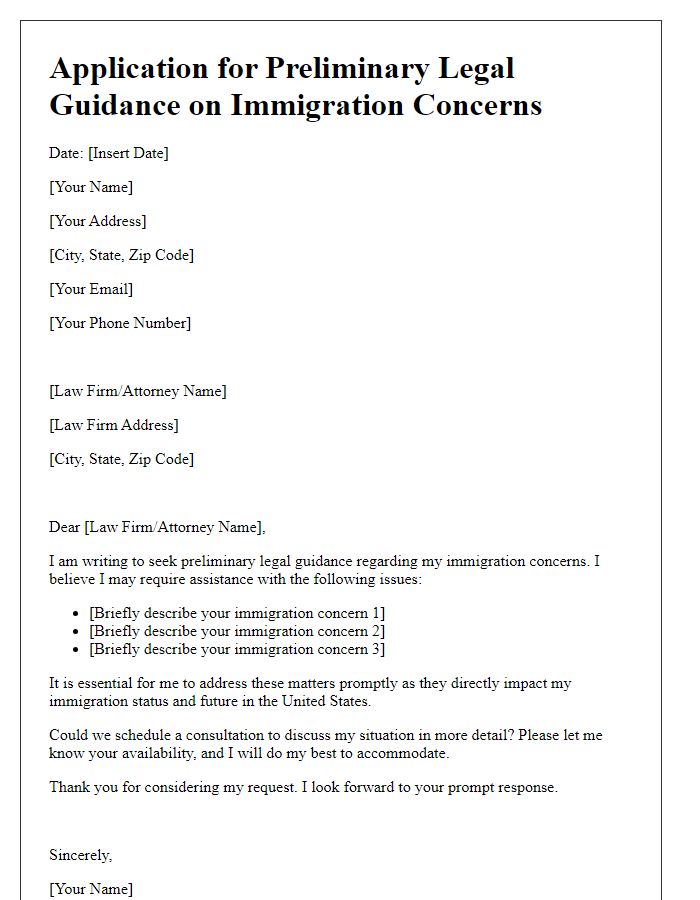
Letter template of request for basic legal advice dealing with estate planning
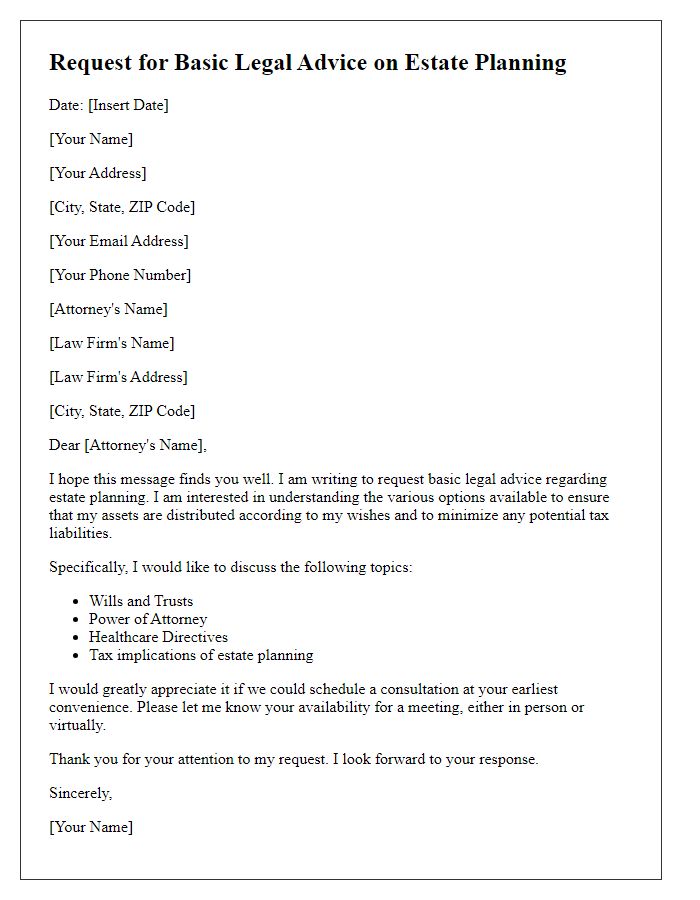

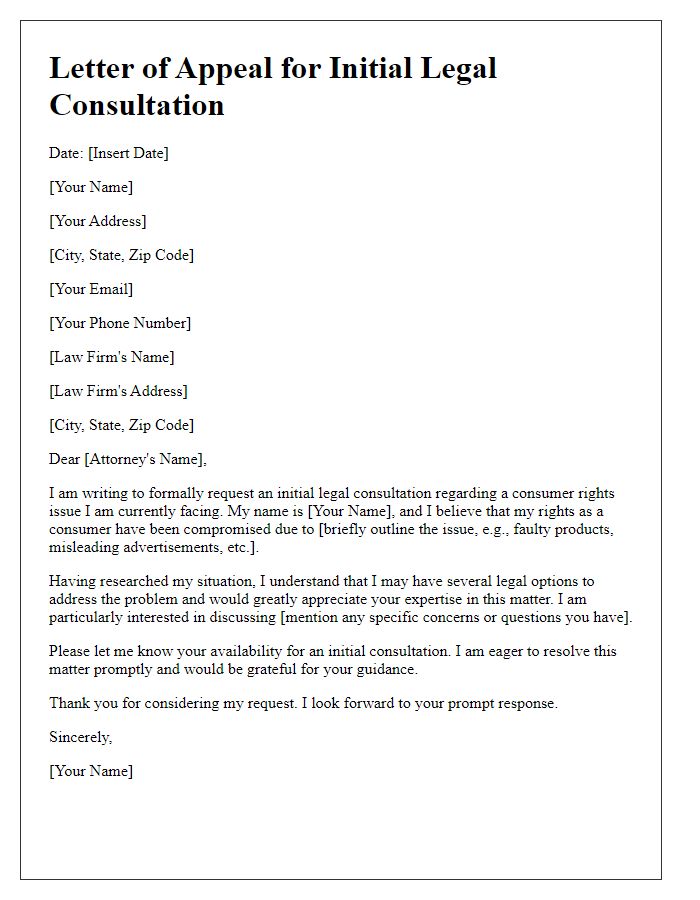

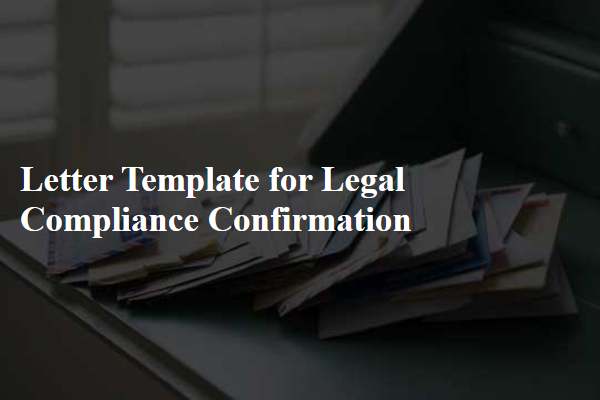
Comments